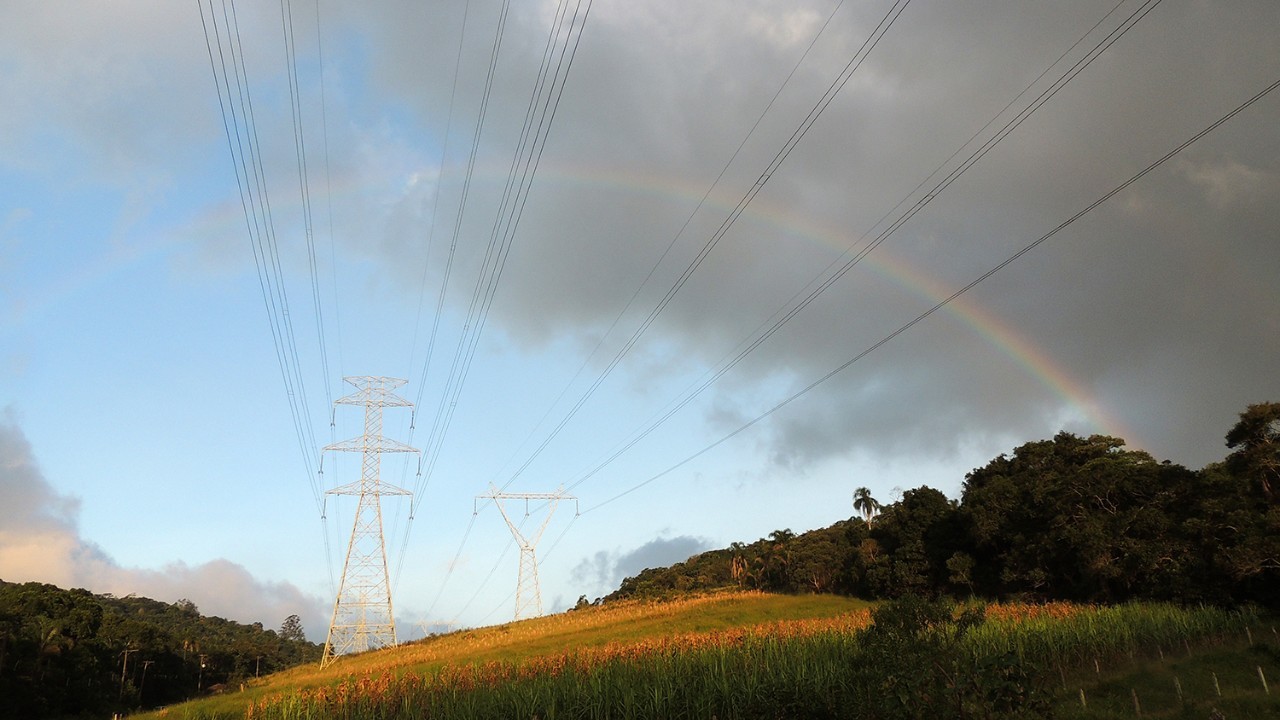Rights of Way

A right of way is a type of easement or agreement that grants a utility the right to use, access or transit a piece of property according to the terms of the easement. This easement is typically granted by property owners to an electric utility for constructing, operating and maintaining power lines and other equipment. Before a power line is built, we acquire easements from property owners along the selected route as necessary.
We have obtained easements and agreements with local communities and property owners that allow us to build and maintain our power lines.
Easement rights include managing trees and other vegetation, either inside or outside the easement, that pose a threat to the reliability of the electric system. Easement rights also include keeping the right of way free and clear of encroachments and obstructions.

Purchasing Property That Transmission Lines Cross
Buyers should inspect property before purchasing to determine whether an electric transmission line easement affects the property. While an easement can have a significant impact on the planned property use, in many cases an easement allows compatible uses. Buyers should ask the seller or the closing attorney about the presence of an easement. Most historical title searches are limited to 30-40 years. However, many transmission line easements were granted 75-100 years ago. Please note that easements remain valid even if they are not shown on the title report. Additionally, you may also contact your local Alabama Power Company Right of Way Specialist to have the applicable right of way documents that cover the subject property reviewed.
Encroachments
Alabama Power considers anything on the right of way that is not specified in the right-of-way document to be an encroachment.
Some types of encroachments are allowed with proper approval, while other types of encroachments are discouraged or not allowed at all.

Allowed Encroachments
- Ornamental Plants – not to exceed 10’ in height, nor to block, or impede right-of-way usage
- Most Agricultural or Farm Use
- General Landscaping
- Hunting Food Plots
- Residential Lawns
- Grazing

Unallowed Encroachments
- Permanent Structures – buildings, houses, manufactured homes, sheds, gazebos, etc.
- Temporary Structures – tents, inflatables, recreational equipment, etc.
- Parallel Roads or Utility Lines
- Satellite Antennas or Dishes
- Swimming Pools
- Manholes

Discouraged Encroachments
- Grading/Excavation – only with engineer approval, and proper insurance must be maintained.
- Parking Lots – only with engineer approval, and proper insurance must be maintained
- Roads/Drives/Utility Lines – parallel roads or utilities not allowed; perpendicular crossings may be considered
- Fencing – location must be approved and agreement signed; must be 25’ from structures and guys, and have a minimum 16’ access gate
- Septic Tanks and Field Lines – Rrarely approved; only considered when prescribed by health department
- Lighting Standards – rarely approved; may be a code violation.

Tenant at Will Agreement
Before any encroachment is allowed on one of our transmission rights of way, a “Tenant at Will” agreement must be successfully negotiated and executed. A Tenant at Will agreement is a legal document that specifies conditions for allowable encroachments. These documents provide acknowledgment of right of way and legal protection for both parties. Complete application to request permission.
Please call 811 before you start digging, this will make sure you will not unintentionally hit something underneath the earth’s surface.
FAQs
What gives Alabama Power the right of way?
An easement is defined as “a legal interest in real property that grants the right to use in some specified manner the property of another.” Easements, also called rights of way, give Alabama Power Company the right to use another landowner’s property to construct, operate, and maintain transmission facilities such as towers, poles, lines, guys, anchors, and all communication lines necessary or convenient in connection therewith. Easements also contain language specifying rights such as ingress/egress, which give Alabama Power Company the right to enter and leave from the transmission line rights of way. Most easements are perpetual in duration. As such, when a property is sold and conveyed to another owner, the easements remain in effect and are binding to the new owner.
My property has an electric transmission line easement on it. Can I still use it?
Transmission line easements give Alabama Power Company the right to limit, and at times, require the removal of an encroachment at the owner’s expense from transmission line right-of-way. It is best to contact your local Alabama Power Right of Way Specialist to discuss the compatible uses of the electric transmission line right-of-way.
I have noticed electric transmission lines on a job that I am working on. What should I do?
Alabama Power Company considers safety a preeminent concern. Many times, during a construction or development project, you will notice high voltage transmission lines on the property. Please notify your local Alabama Power Right of Way Specialist to review the proposed encroachment and required documentation.
Contact Us
If you have a request or question about easements or rights of way on your property, please fill out this form below. A representative will contact you within 5-7 business days.
